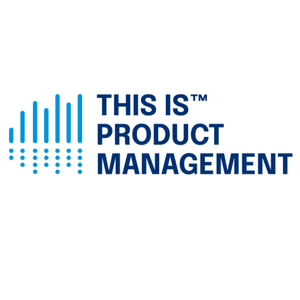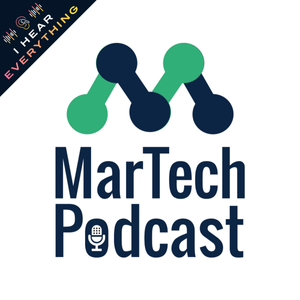
The RPO Industry's Pivot to Remote Work Gives TA Outsourcing an Edge for 2021 - Sally Hunter Executive Vice President at Cielo
09/15/20 • 28 min
Welcome to the Recruitment Hackers Podcast. A show about innovations, technology and leaders in the recruitment industry brought to you by Talkpush, the leading recruitment automation platform.
Max: Hello and welcome to the recruitment hackers podcast today. I'm honored to have on our show, the Executive Vice President at Cielo Sally Hunter. Welcome to the show, Sally.
Sally: Thank you. Pleasure to be here.
Max: Sally, what does an Executive Vice President do? Or rather what do you do at Cielo? You've explained to me you're managing your customers.
Sally: So I'm responsible for all of our clients and client delivery across the near region and also some of our global customers. So that is operational delivery and performance, but also how we manage those contracts, continuous improvement, innovation, and really drive the thinking with the customers that we partner with.
Max: Okay. And, Cielo I think anybody in the recruitment industry should know, what you do, but perhaps shed some light on what's happened to this company? I believe they've had a change of ownership recently.
Sally: Sure, no problem. We're the leading pure play RPO business globally. And you’re right with private equity banks, and secured a new banker, at the start of 2019.
So we are now backed by Primera, and that is a good match to our global footprint. So over the course of both organic and inorganic growth, we're now in every continent and supporting clients across all of those geographies and that's with hub locations in places like Manila, Singapore, Dubai, London, Budapest, Buenos Aires...
So it's really about us being able to be where our customers need us to be, but also being able to leverage a tech infrastructure and a platform that gives us world flex and scale across those hubs, because inevitably we still have a lot of team members that are high proximity to apply it.
So they are in the wrong site or near site and providing that support as well as what comes from the sensor.
Max: Right. Well, right now you don't know where they are. They’re in front of their computer somewhere. And you're hoping it's close to their customer and maybe they all move to Costa Rica or something.
Sally: Yeah. And it's a great point. You know, we flipped to homeworking pretty much overnight. And that's been a really interesting dynamic for all of us that we've been driving those virtual conversations, for years. So often customers really want to see recruiters, but actually it doesn't add value to what they're delivering and they're not necessarily spending time with stakeholders in a way that an onsite role should be.
So what's really interesting coming through COVID is that actually accelerates those conversations to make sure that people are where we can access the best talent, not necessarily high proximity to the customer from a present team perspective.
Shame on us If we don't take advantage of that and shift the model.
Max: That's absolutely how I feel that on one hand, the governments and the travel regulators made it difficult for people to travel. And as a response, borders are kind of melting. As a response we can hire everywhere in the world and now it doesn't seem like that's such a stretch of the imagination.
I service a lot of the call center and the BPO industry at Talkpush and I think we're seeing a lot of activity that may not even have happened, in a different context, even though the economy is suffering, there's a lot of work being sent offshore.
Are you seeing similar shifts in the labor and demand of global markets as a response to this 2020 crisis?
Sally: Yes we are. And it's been really interesting to observe and partner with our customers through this. So we work with Amazon web services, a great example.
So Amazon web services pivoted to virtual almost immediately and obviously had a huge growth in demand because we're all relying on that digital infrastructure.
Max: 10%
Sally: Exactly. What’s interesting is that a lot of the talent is coming from cross border. So, what we have to solve for, with them is how we find these really capable individuals, but potentially we can't relocate them yet.
That, and to your point earlier that may not even be necessary. To relocate them. So can we just function with an entirely virtual team wherever that talent happens to be? So that's been really interesting to see that. So actually, when you think about the way a recruiter’s life has changed, that candidate control and and relationship management is so important because these individuals are going to take a long time to be able to ultimately relocate and also to make the decision to change jobs.<...
Welcome to the Recruitment Hackers Podcast. A show about innovations, technology and leaders in the recruitment industry brought to you by Talkpush, the leading recruitment automation platform.
Max: Hello and welcome to the recruitment hackers podcast today. I'm honored to have on our show, the Executive Vice President at Cielo Sally Hunter. Welcome to the show, Sally.
Sally: Thank you. Pleasure to be here.
Max: Sally, what does an Executive Vice President do? Or rather what do you do at Cielo? You've explained to me you're managing your customers.
Sally: So I'm responsible for all of our clients and client delivery across the near region and also some of our global customers. So that is operational delivery and performance, but also how we manage those contracts, continuous improvement, innovation, and really drive the thinking with the customers that we partner with.
Max: Okay. And, Cielo I think anybody in the recruitment industry should know, what you do, but perhaps shed some light on what's happened to this company? I believe they've had a change of ownership recently.
Sally: Sure, no problem. We're the leading pure play RPO business globally. And you’re right with private equity banks, and secured a new banker, at the start of 2019.
So we are now backed by Primera, and that is a good match to our global footprint. So over the course of both organic and inorganic growth, we're now in every continent and supporting clients across all of those geographies and that's with hub locations in places like Manila, Singapore, Dubai, London, Budapest, Buenos Aires...
So it's really about us being able to be where our customers need us to be, but also being able to leverage a tech infrastructure and a platform that gives us world flex and scale across those hubs, because inevitably we still have a lot of team members that are high proximity to apply it.
So they are in the wrong site or near site and providing that support as well as what comes from the sensor.
Max: Right. Well, right now you don't know where they are. They’re in front of their computer somewhere. And you're hoping it's close to their customer and maybe they all move to Costa Rica or something.
Sally: Yeah. And it's a great point. You know, we flipped to homeworking pretty much overnight. And that's been a really interesting dynamic for all of us that we've been driving those virtual conversations, for years. So often customers really want to see recruiters, but actually it doesn't add value to what they're delivering and they're not necessarily spending time with stakeholders in a way that an onsite role should be.
So what's really interesting coming through COVID is that actually accelerates those conversations to make sure that people are where we can access the best talent, not necessarily high proximity to the customer from a present team perspective.
Shame on us If we don't take advantage of that and shift the model.
Max: That's absolutely how I feel that on one hand, the governments and the travel regulators made it difficult for people to travel. And as a response, borders are kind of melting. As a response we can hire everywhere in the world and now it doesn't seem like that's such a stretch of the imagination.
I service a lot of the call center and the BPO industry at Talkpush and I think we're seeing a lot of activity that may not even have happened, in a different context, even though the economy is suffering, there's a lot of work being sent offshore.
Are you seeing similar shifts in the labor and demand of global markets as a response to this 2020 crisis?
Sally: Yes we are. And it's been really interesting to observe and partner with our customers through this. So we work with Amazon web services, a great example.
So Amazon web services pivoted to virtual almost immediately and obviously had a huge growth in demand because we're all relying on that digital infrastructure.
Max: 10%
Sally: Exactly. What’s interesting is that a lot of the talent is coming from cross border. So, what we have to solve for, with them is how we find these really capable individuals, but potentially we can't relocate them yet.
That, and to your point earlier that may not even be necessary. To relocate them. So can we just function with an entirely virtual team wherever that talent happens to be? So that's been really interesting to see that. So actually, when you think about the way a recruiter’s life has changed, that candidate control and and relationship management is so important because these individuals are going to take a long time to be able to ultimately relocate and also to make the decision to change jobs.<...
Previous Episode

Remote work isn’t a solution for small businesses - Lisa Shephard, TA Transformation Consultant
Welcome to the Recruitment Hackers Podcast. A show about innovations, technology and leaders in the recruitment industry brought to you by Talkpush the leading recruitment automation platform.
Max: Hello, everybody. Welcome back to Recruitment Hackers. This is Max and today I would like to welcome Lisa on the show. Lisa Shepherd.
Lisa: Hi everyone.
Max: Hi Lisa. So Lisa is someone I had the pleasure of meeting when interacting with Sitel and has a long experience in high volume recruitment in the BPO sector and financial services. And is now a consultant as well. Can you tell us a little bit about how you ended up in the high volume recruiting space?
Lisa: It's pretty interesting. My career didn't start in high volume. It obviously started as most people did, on the agency side and then moved into in-house. But over the years I kind of found myself more in professional services, IT, outsourcing, then financial services outsourcing, and then most recently with Sitel. So it kind of, I think once you start in one path it kind of leads to other opportunities. So, you know, when I moved to Miami, I wasn't expecting to be approached by such a global organization, because in Miami, you assume it's more regional headquarters.
When I got approached by Sitel for the role, I was like, wow. Okay. 80,000 people across the globe, hiring between, you know, 16, 17,000 people a year. So yeah, it was such a great opportunity that I jumped at it.
Max: I love volume. You can make a small difference in so many people's lives. I also started out doing a lot of IT recruitment myself, and I thought the job was tense, which is why I'm happy to work on automation and technology now. But, Miami being international, I'm not that surprised. We have a few, BPO companies that are operating out of Florida. Like iQor and Sitel and others.
How long have you been in Florida now?
Lisa: Oh my gosh, almost three and a half years. And actually originally I was wanting to move to New York. Florida wasn't really somewhere that kind of was on my radar, but the company I was working for at time TMF, had a regional headquarters here. And when I thought about it, I thought, why would I move from London to New York to have the same weather? and expense? When I could move to the sunshine state and be close to them, the beach, my dad actually lives close. So it was kind of a no brainer.
Max: Perfect. Yeah. I think it sounds like if people want to go and retire there, that means that they should just start working there. And, that's the world that we're moving into now where people are finding a work life balance through relocation and moving closer to their dream spots and still keeping an occupation. So, today, you're doing consulting work. Can you tell us a little bit about that? is it technology related?
Lisa: It's interesting, actually. So, you know, this kind of happened due to COVID. So there's always a silver lining to everything. I set up my LLC very quickly and I got approached by a contact of mine and what's happened is over the last few months, I've ended up with two clients who are private equity backed.
And both of them are at, you know, early stages of either a carve out or an acquisition. And so we're in a situation whereby they're smaller businesses. So it's not a high volume, they're smaller businesses, but they're, you know, either it's a carve out with no back office support. So no TA function, whatsoever or it's a merger, people have left.
You've got to organize it, trying to merge during a pandemic. And people leave. And then suddenly again, you don't have a system that's being used across the board. You don't have a team. You've got local HR doing all the recruitment. You've got high spend, you know. Both of them have very similar situations in that they just need someone to come in and put in a process, put in a strategy, look at the team and put in systems.
So, yeah, it's pretty, interesting. Lots of ambiguity and very stressful in a sense, not for me, but for them. And that they're trying to do all of this whilst not being in an office. Really difficult. Very difficult.
Max: Yeah. You have to switch on that camera and smile at the camera a lot.
Lisa: You do, and you have to get your hair done in the morning and get on that camera. So, you know, it's been very interesting, I think either way it's difficult at the early stages of an acquisition or a carve out. You know, especially people that have come from a smaller business and now suddenly they're part of a larger business or they're part of a larger business and now they're part of a smaller business as well.
There's so much change and it doesn't suit everyone and trying to get everyone to come on that...
Next Episode

How Transcom's TA team increased Hires per Recruiter by 300% over 3 years. - Jun Abo, VP of Talent Acquisition, Transcom
Welcome to the Recruitment Hackers Podcast. A show about innovations, technology and leaders in the recruitment industry brought to you by Talkpush the leading recruitment automation platform.
Max: Hello everybody. And welcome back to the recruitment hackers podcast with Max as your host, and today on the program, I'm delighted to be welcoming Jun Abo, who is vice president for talent acquisition at Transcom, based in the Philippines. Jun is someone I've worked with for a few years and I’m delighted to have you on the show. Welcome Jun.
Jun: Oh, thank you, Max. Thank you for having me. And I'm excited to be finally getting this podcast started with you.
Max: Yes. Yes. Well, it's a busy time of year for your industry, right? So September to November. It's a luxury to be able to get half an hour of your time, during this, what they call the ramp up period.
Yeah. 2020 is supposed to be the end of the world for a lot of people in recruitment, but it seems that for your industry, at least, things are holding up pretty well.
Jun: Yeah. More than pretty well, because like what you've said, usually September to December is our busy season. That's where we see a bulk of our hiring.
Coming into 2020 with all of the things that are going on. We thought that it's time for us to relax and slow down, and lo and behold, the demand has been greater than what we've seen in the past. So it's a busy time for us even busier than last year.
Max: 2020 is bigger than 2019.
Jun: Yeah.
Max: Your whole year?
Jun: Oh yeah.
Max: That's amazing. There are few, I mean, I've heard this from other players as well in the space. So first, to do customer care it's harder to hire in the US, and so some of the workers are going abroad, but you were giving me another perspective and we were speaking earlier saying that from your end, the supply is bigger. There's a bigger supply of talent than before, which got unlocked because of this year's events. Tell us a little bit about that.
Jun: Yeah. So traditionally, we would normally tap from three types of profiles. The starters, the shifters and the adapters. Starters are the ones that are fresh out of school. The adapters are those coming from different types of industries. And then of course you have the shifters who are coming from other BPO’s, moving or shifting from one BPO to another. What we've seen this year is that because of the virus, it impacted a lot of the industries. We are tapping more and more adapters and more and more starters.
We've actually partnered with local governments, in order to provide career fairs and employment to returning overseas Filipino workers. So you're probably aware that the Filipinos are one of the most robust when it comes to working outside of the Philippines. You find Filipinos almost anywhere in other parts of the globe. With the virus going on, a lot of those overseas Filipino workers are going back to the Philippines, and we're the ones now partnering with the government venture so that the work is offered to them. So it's a sort of a reverse brain drain. The ones who left before are now coming back.
Max: Yeah. I guess that for you. You know, back in 2019, you were investing a lot in the employee experience and you built that beautiful Transcom cafe, and a nice welcoming experience for employees, and this has, well I mean, the expertise of building a good experience remains true and applicable, whether you're doing it from a virtual work or an actual physical work office. And giving you an edge, you know, an employer that gives a career option for people who want to stay at home, an edge compared to traditional businesses that may be a little bit more, stuck in the old ways.
Jun: Oh, yeah. The candidate experience for us is always going to be key, especially in this market. When we were first designing our virtual recruitment process, we thought that technology can be the silver bullet that fixes everything. So we bought, we partnered with a company that provided us a chatbot, but it was vanilla flavored in terms of responses. It was very robotic. It didn't provide the customization that we need, that would make us unique. So when we looked at the candidate experience, we had a lot of detractors coming out of that recruitment funnel. So we ask ourselves, the first question that we often ask ourselves when we're looking at the recruitment technology is, what would it feel if we're the ones ourselves going through this, and thinking, and using this technology? If we were candidates, what's the candidate experience going to be like? If we're not happy with that own experience, leveraging that technology, then we're not going to be using it.
If you like this episode you’ll love
Episode Comments
Generate a badge
Get a badge for your website that links back to this episode
<a href="https://goodpods.com/podcasts/the-recruitment-hackers-podcast-164711/the-rpo-industrys-pivot-to-remote-work-gives-ta-outsourcing-an-edge-fo-9445005"> <img src="https://storage.googleapis.com/goodpods-images-bucket/badges/generic-badge-1.svg" alt="listen to the rpo industry's pivot to remote work gives ta outsourcing an edge for 2021 - sally hunter executive vice president at cielo on goodpods" style="width: 225px" /> </a>
Copy




